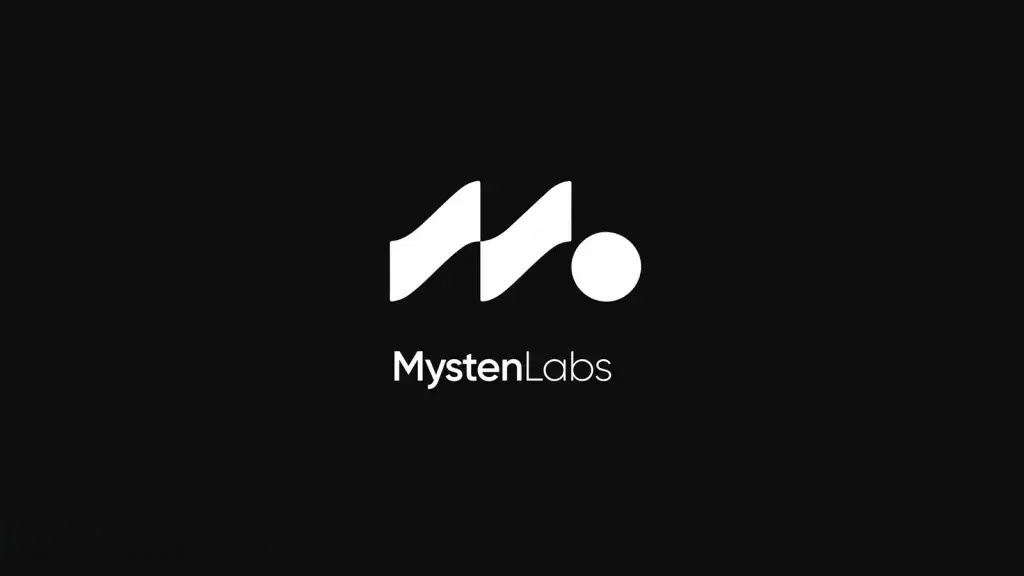Mysten Labs Continuously Launches Games on SUI Blockchain in May 2023

GameFi projects experienced a bustling fundraising season in 2022, with over $10 billion committed to developing the GameFi industry. Moving into 2023, another player in the market, Mysten Labs, officially joined the GameFi industry with over $300 million raised to build high-quality games on their own SUI blockchain.
Messages from Mysten Labs
Evan Cheng, CEO of Palo Alto-based Mysten Labs in California, announced that the Sui Mainnet has launched and is operational with 11 gaming partners, including a game production company based on The Walking Dead, starting May 15.

Players will gain immediate access to games developed by Mysten's developers and publishers.
Sui is a next-generation blockchain empowering experienced game developers to activate deeper player interaction with seamless user experiences through scalable, fast, and secure infrastructure.
Over the past year, Mysten has closely collaborated with leading game developers, publishers, and ecosystems to build unique, immersive role-playing games utilizing advanced Sui technology.
Upcoming Games on SUI

Game: Cards of Ethernity
In May 2023, Mysten Labs will sequentially launch games such as:
May 15: Orange Comet: Final Stardust, Arrivant: Project Eluune, and Talofa: Run Legends.
May 22-28: Worlds Beyond, Lucky Kat: Cosmocadia, and Aether Games: Cards of Ethernity.
May 29 - June 4: Seascape: Mini Miners, Orange Comet: Degens & Dragons, Ghost Ivy: Haven’s Compass, and BlueJay: Arcade Champion.
June 5-11: Onenet: Bushi, Lucky Kat: Panzerdogs, and Orange Comet: The Walking Dead.
The Walking Dead game developed by Orange Comet on SUI marks the conclusion of this initial phase, announcing game projects on the SUI ecosystem.
Sui blockchain is the future of gaming and strategy games. Its fast processing speed, security, and endless capabilities for assets and gaming experiences set it apart.
Rather than chasing developers to make quick money like Immutable X, Mysten focuses on developers who haven't yet chosen a blockchain or are coming to Mysten to explore a new blockchain with better scalability.
Attracting Gaming Companies
From the outset, Mysten Labs has focused on attracting suitable game developers to create high-quality games.
Anthony Palma, head of gaming and partnerships at Mysten Labs, said, "Players can earn some money and occasionally come across a rare outfit. But other blockchains will struggle to handle the scale of a game like Warzone. And if you can eliminate the complexity of introducing Web3 to new players, that allows developers to focus on building a great game."
Mysten Labs pursues partners who create better gaming experiences and targets players who have left to return through rewards. Players can play without needing Web3 or upgrade to Web3 when they are ready after playing a game for a while.
About Mysten Labs
The Mysten Labs team has extensive technical expertise. Cheng himself spent 10 years at Apple and 6 years at Facebook, where he earned prestigious ACM Systems.

Previously at Facebook, Cheng got involved in blockchain partly through work on Facebook's Libra technology, a cryptocurrency project that was discontinued in 2020. Cheng left with four other Meta team members — Sam Blackshear, Adeniyi Abiodun, and George Danezis — to found Mysten Labs in September 2021.
In September 2022, Mysten Labs raised $300 million at a $2 billion valuation in a funding round led by FTX Ventures along with investors such as Binance Labs, Coinbase Ventures, Circle Ventures, Lightspeed Venture Partners, and Andreessen Horowitz (a16z).
Despite FTX's bankruptcy in 2022, Mysten Labs used $96 million to buy back that amount from FTX.
Mysten Labs chose to develop GameFi because they tend to lead in technology, and people are ready to try new technologies and models for games.
Although the blockchain gaming industry faces many challenges like:
Poor user experience in web3 gaming, resulting in quick user abandonment.
Game developers becoming overly dependent on the venture capital funding them, leading to directional changes that face difficulties.
Many economic models are being tested to find a fit with users.
... and many other issues that game developers are seeking answers to, the costs for these cannot be passed on to the end-user.
But Mysten Labs said that many developers are gradually addressing these challenges and fully believe in a bright future ahead.
One of the most difficult challenges is using a blockchain that can easily update digital assets, such as an NFT sword, when its value changes in some way.
Kye, Gaming Partnerships & Investments at Mysten Labs, said, "We believe fundamentally that Web3 infrastructure needs an upgrade. It has to start from scratch, and our blockchain language was born because our programming language allows for a clear application build."
Another difference about Sui is its consensus mechanism that allows entities to transfer much faster.
About SUI
Sui is a layer-1 blockchain designed from the ground up to help people own digital assets quickly, privately, securely, and accessibly. With Sui's capability to process around 100,000 transactions per second, much more than some other blockchains.

Sui is a proof-of-stake blockchain where Mysten Labs is a core contributor. The technology behind Sui was developed by former Meta's Novi Research CEOs and leading architects of Diem blockchain and Move programming language.
Sui blockchain is built on innovations in consensus algorithms and utilizes new data structures to create a high-performance Layer-1 that scales throughput and storage horizontally to meet application demands while maintaining ultra-low operational costs per transaction.
Comparing SUI's development with others
An interesting point when Sui chose web3 gaming as their spearhead for ecosystem development. There are many other blockchains currently targeting the web3 gaming land like Immutable X, Polygon,...
Competitors are inviting gaming companies to EVM-based zk-Ethereum Virtual Machine and they say gaming companies should converge around blockchains like Polygon and ImmutableX. But Cheng says that is based on misconceptions and he says such chains lack appropriate data models for complex assets. Those assets are static and unchangeable. And he thinks those solutions haven't solved the scalability issue. Currently, that doesn't show because very few game players play games on Ethereum, Cheng says.
Cheng admits that bringing blockchain products to market can be complicated and they require a complete solution, from marketing to accessible technologies and tools for developers. While Mysten spends a lot on partners to develop and Cheng says he believes the company is positioned for long-term success.
Prospects for blockchain gaming
It's likely that the metaverse and blockchain sectors will be overshadowed by interest in AI in recent years. In fact, blockchain games have dropped to around 20% of venture capital investment raised by gaming companies in the first quarter - according to Drake Star Partners. That figure is equivalent to 50% of total investment in 2022. But Kye doesn't see that trend damaging strong companies.
Regarding the slowdown in cryptocurrencies and NFTs, Palma said transactions like fraud are slowly dying and companies are actually still operating. If you can provide evidence of the concept of operations, such projects are still likely to attract funding and recruiting power. Kye said, it's time for those builders to take over.
The company has been very successful in the Pacific Asia and currently partners with major companies in South Korea. In Asia, gaming companies are not worried about gamer resistance to blockchain games, they seem more open to it.
Mysten Labs may have entered the blockchain gaming market later than other blockchains, but everything is still in its early stages and all blockchains have similar advantages.



